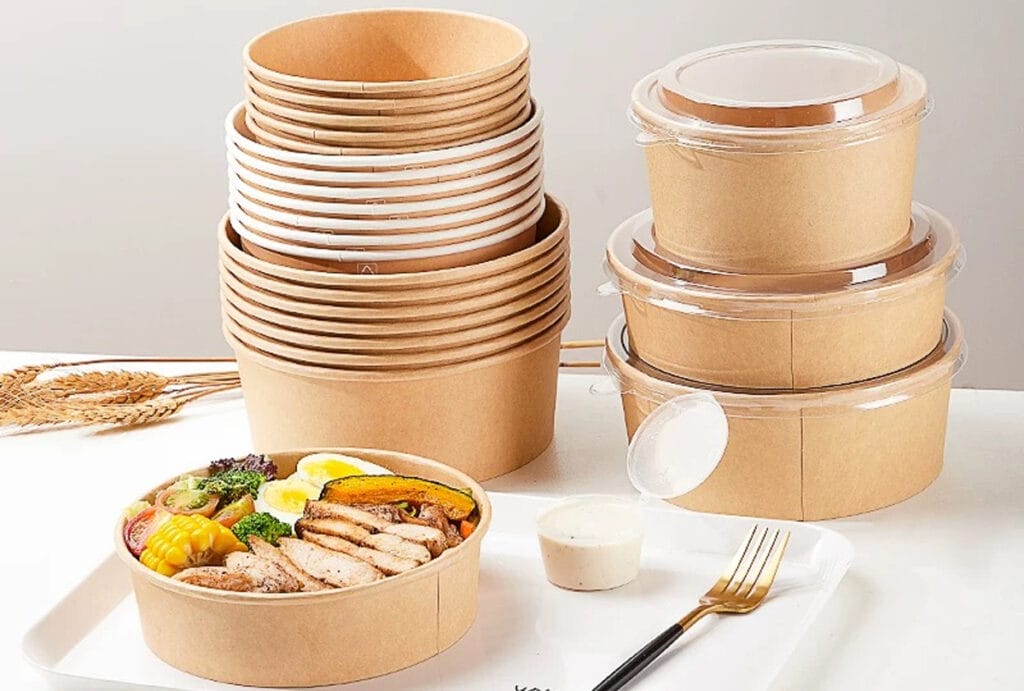In a world shifting toward environmental responsibility, many food brands and suppliers are proudly embracing “compostable packaging.” And while that’s a great start, compostable doesn’t automatically mean truly sustainable. For businesses looking to make a real impact, it’s time to go beyond the label.
Let’s explore why packaging should do more than decompose—it should deliver on performance, compliance, and circularity.
1. Compostable ≠ Universally Compostable
Not all compostable packaging is created equal. Some products are only industrially compostable, requiring high temperatures and specific facilities to break down. Unfortunately, such facilities are not accessible everywhere.
This means that a compostable cup or container may still end up in a landfill—right alongside plastic. Without the right disposal infrastructure, the intended environmental benefits fall short.
Tiptopak’s Approach: We offer materials like PHA-coated paper and WBBC (water-based barrier coating) that are certified for home compostability and meet international composting standards.
2. Packaging Must Be Functional First
Compostability is irrelevant if your packaging can’t perform. It must withstand heat, oil, moisture, stacking, and transport. Packaging that leaks, collapses, or warps undermines both customer experience and operational efficiency.
At Tiptopak, we design our sustainable products to meet the same (or better) performance levels as traditional plastic—ensuring your switch to eco-friendly doesn’t mean sacrificing quality.
3. Beyond Disposal: Think Lifecycle and Logistics
Sustainability isn’t just about how packaging ends; it’s about how it’s produced, shipped, and reused. Lightweight, stackable packaging helps reduce transportation emissions. Plastic-free designs enable compatibility with existing paper recycling systems.
A truly sustainable solution fits into a circular economy, not a linear one.
Our Solution: Tiptopak’s packaging solutions are designed for efficient bulk transport, compatibility with closed-loop systems, and zero-plastic construction.
4. Certification Is a Must, Not a Bonus
Real sustainability is certified, not claimed. With increasing greenwashing in the market, it’s crucial to verify packaging through reputable bodies:
EN13432 (EU Compostable Standard)
ASTM D6400 (US Compostable Standard)
AS 4736 (Australia)
OK Compost HOME / INDUSTRIAL
FSC-Certified Paper Sources
Tiptopak holds all relevant certifications and provides documentation to support your compliance and marketing claims.
5. The Future Demands More Than Good Intentions
Consumers are getting smarter, and regulations are getting stricter. The bar for sustainability is rising—and packaging must keep up. Compostable alone won’t future-proof your business.
Instead, choose solutions that balance:
Compostability
Functionality
Circularity
Compliance
Brand identity and storytelling
Go Beyond the Buzzword
Choosing the right packaging isn’t just about doing what’s trendy. It’s about doing what works—for your business, your customers, and the planet.
At Tiptopak, we don’t stop at compostable. We create next-generation packaging that is safe, strong, sustainable, and smart.
Ready to upgrade your packaging strategy? Let’s talk.



